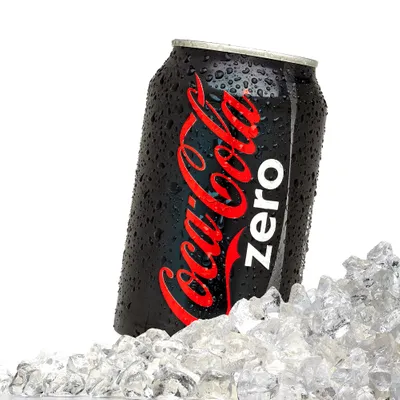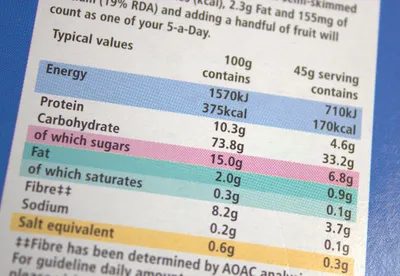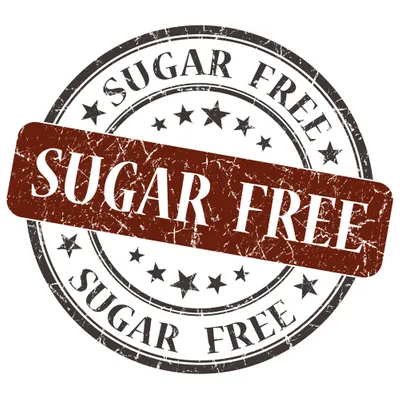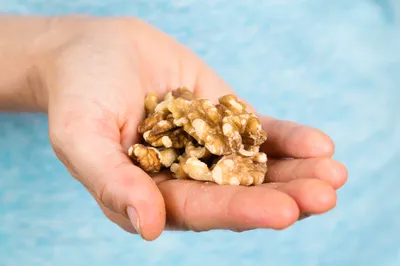You might think that you’re diet is fairly sugar free. After all, you don’t eat a pint of ice cream in one sitting and your cereal has whole grain right there on the box.
However, plenty of foods in the average North American diet contain sugar even though they don’t taste that sweet. Foods like condiments (i.e., ketchup), salad dressings, non-dessert breads and crackers, and even pasta sauces contain hidden sugars that can really add up and, over the long-term contribute to diabetes, obesity, tooth decay, gum disease, and cardiovascular disease.
Luckily, we have eight easy methods to help you cut back on the hidden sugars in your diet…
1. Wise Up To Code Names
Just like James Bond, sneaky sugar goes by several aliases—for instance, cane syrup, molasses, sucrose, high fructose corn syrup, brown rice syrup, among others—particularly in healthy-sounding foods like cereal, granola bars, and yogurt. Several types of these sugar pseudonyms might be in any one product, disguising the sly sweetener.
2. Avoid Artificial Sweeteners
Many folks opt to reach for artificial sweeteners—like aspartame, saccharin, acesulfame K, and neotames—when trying to cut refined white sugar from their diets. However, while that aspartame in your favorite diet soda or sugar-free snack food contains zero calories; it literally confuses your taste buds, causing the body to crave the calories it’s missing through sweet satisfaction, which ultimately leads to binge eating and weight gain.
3. Inspect Food Labels
You’re wise to sugar’s sinister pseudonyms now all you have to do is put your knowledge to the test—by reading product labels. Examine every ingredient’s list for sugar in all forms, even if you don’t expect the product to contain sugar. Look to salad dressings, fruit juices, pasta sauces, condiments, breads, crackers, yogurts, and cereals for the sugar percentage. Usually, if it’s one of the first ingredients listed, the product contains a large amount of the sweet stuff.
4. Infuse With Natural Flavors
Missing sugar in your coffee? Try adding a dash of cinnamon. Missing saccharine flavor in your morning oats? Try a few drops of vanilla extract. You get the idea, look to natural foods to sweeten the pot. For instance, fresh citrus juice—like orange can sweeten a fruit salad or salad dressing and curb sugar cravings.
5. Look for Fibrous Complex Carbs
Not all carbohydrates are sugar-rich. While starchy processed carbs are often full of so much sugar that they cause blood sugar to spike suddenly and then crash (causing another sugar craving), complex carbs, those that are high in fiber will keep your tummy full for longer due to their slow release and ability to balance blood sugar levels.
6. Look to “Unsweetened” Products
Now that you know sugar’s sneaky code names, you can sniff it out and banish it from your diet by sticking to “unsweetened” products with no added sugars. For instance, look for unsweetened pasta sauces or make your own at home and buy canned and frozen fruits in their own juice instead of syrup for those lunch bags.
7. Consume More Healthy Fats
It might not sound wise to substitute sugar for fat, but it’s the type of fat you eat that counts. Healthy fats, like those high in omega 3s and omega 6s—eggs, avocadoes, nuts, olive oil, sunflower oil, pumpkin seeds, walnuts, and salmon—cut sugar cravings because they digest slowly, meaning they are able to satiate the appetite for much longer.
8. Watch What You Drink
You already know that soda is high in refined sugars, but the buck doesn’t stop with the sweet fizzy bubbles. Your fridge may be full of sugar-packed drinks—such as energy drink, iced teas, fruit punch, bottled smoothies, and even waters with enhanced flavor likely contain several teaspoons of white sugar or calorie-rich sweeteners.











